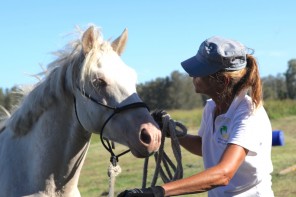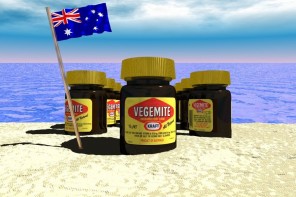When Robert Drewe read of Australian jockey Edgar Britt’s death earlier this year, he thought it was about time to have a quick Captain Cook around some of our more peculiar phrases.
You might have read of the death the other month – at the nicely mature age of 103 — of one of Australia’s real sporting treasures, the champion jockey Edgar Britt.
You may have learned, as I did, that in a career spanning 30 years, Britt rode 2000 winners in Australia, the US, Britain, Ireland and India. And that leaving the Australian turf forever in 1935, he was feted abroad by British royalty and Indian maharajahs. At the height of his career in 1947 he was invited by George VI to become the dr. ed questionou homens e mulheres King’s Jockey, and he rode 970 winners in England.
At 150 centimetres (not quite five feet) and 45 kilos (seven stone), Britt was a character with, as he modestly said of himself, a reputation for “dash, reflexes, balance, judgement, pace and an unflustered manner”. In the tradition of successful jockeys everywhere, he married a glamorous showgirl, Tibby Geoghegan, a dancer at Sydney’s Tivioli Theatre who was 27 centimetres taller, and they had four daughters.
On retirement in 1959, he returned to Australia and became a racing commentator and a columnist for many years for Sydney’s Sunday Telegraph.
I learned all this from his obituary. In my childhood I knew nothing of his racing fame. But I certainly knew his name. In our household, thanks to my father’s penchant for Australian rhyming slang, “the Edgar Britts” was a euphemism for diarrhoea. All across the nation, it would turn out, Edgar Britt’s name made Australians smirk.
Since World War II at least, Australians – especially Dads – have been adept, like the Cockneys, at turning names, places, jobs and habits into often risqué rhyme. Especially cheeky, male, public-bar euphemisms — if not intentionally malicious then usually pretty rude – based on the names of celebrities of one sort or another, most often sportsmen.
Observing the linguistic niceties required of a family newspaper, I won’t spell all these out. But older readers might be familiar with the term “Adrian Quist”, meaning “drunk”. (Quist was a Wimbledon tennis doubles champion of the 1930s-40s. Nowadays the term has been replaced by “Olivers”, from Oliver Twist.)
Similarly, for AFL fans, a “Gary Ablett” is a tablet, a “James Hird” is faecal matter, and to have a “Stuey Dew” is to vomit. For rugby league followers, a “Gary Jack” is a back, a “Johnny Raper” is a newspaper and a “Ron Coote” is sexual intercourse. Meanwhile, “Germaine Greer” is an ear”, and “Reg Grundys”, as we all know, are underpants.
We also know, only too well, that a “Noah” or “Noah’s Ark” is a shark. Meanwhile, “to do a Harold Holt” or a “Harry” is to bolt, or disappear quickly, referring to the Prime Minister who vanished while swimming in 1967. Maybe he was taken by a Noah.
Traditionally Australian are the terms “Onkaparinga” (finger), based on the South Australian town and the well-known woollen blankets; “Dad and Dave” (shave), after Steele Rudd’s comic characters; and Charlie Wheeler (sheila), after the Australian painter, Charles Wheeler. If people are “Burke and Wills”, like the famously inept Australian explorers, they’re dills. But if they’re just doing a quick glance around, they’re having a “Captain’s” or a “Captain Cook”.
If you’re grabbed by the “Warwick Farm” (Sydney racecourse), someone has you by the arm. Possibly a “Westpac banker” or a “half-back flanker” (a wanker). Perhaps someone from “Steak and Kidney” (Sydney). Maybe it’s a “septic tank” or “seppo” (an American). Better close the “George Moore” (door).
Had a “Barry” of a day? (“Crocker”: shocker.) Perhaps a “Gregory Peck” (cheque) didn’t arrive with your “Zane Grey” (pay) or your “rock and roll” (dole). Maybe your “Malvern Star” (car) broke down and you had to catch the “Uncle Gus” or bus. Incidentally, Uncle Gus is not to be confused with “Uncle Merv”: a perv.
Got soreness in the “Ginger Meggs” (legs); “comics”, as in “comic cuts” (guts); “Barry Beath” (teeth); “Lionel Rose” (nose); “Jack Jones” (bones); or “Ned Kelly” (belly)? Or even worse, a pain in the “Jatz crackers” (testicles)?
Better put your hand in your “sky rocket” (pocket). It’s your “Wally Grout” (as in the former Test wicket-keeper): turn to buy drinks. At the “nuclear sub” (pub).
Many of these sayings have died out, some replaced by newer slang and contemporary personalities. But rarely these days do you hear my father’s favourite expressions, such as “rubbidy-dub” (pub); “Aristotle” (bottle); “billy lid“ (kid); “trouble and strife” (wife); “Johnny Horner” (corner); and “to have a Jimmy Riddle” (to urinate).
Nevertheless I’m still rather in awe of mischievous and imaginative rhyming slang. No surprises there, after spending my childhood fending off naughty schoolyard rhymes to our very own surname.
Robert Drewe’s long-awaited new novel WHIPBIRD will be published by Penguin/Viking on July 31: penguin.com.au/books/whipbird-9780670070619

Whipbird | Penguin Books Australia
Kungadgee, Victoria, Australia. A weekend in late November, 2014. At Hugh and Christine Cleary’s new vineyard, Whipbird, six generations of the Cleary family are coming together from far and wide to celebrate the 160th anniversary of the arrival of their ancestor Conor Cleary from Ireland.
As the wine flows, it promises to be an eventful couple of days.








